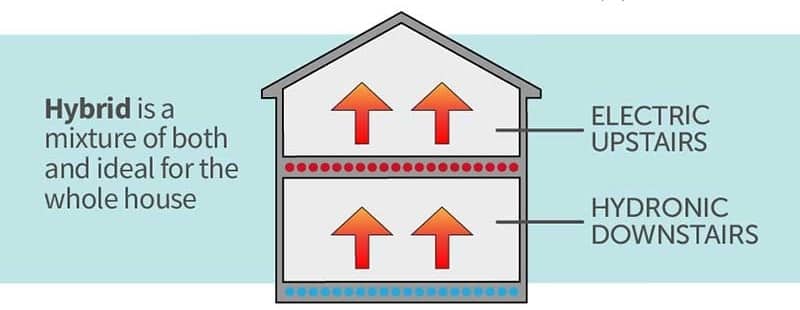So you’ve decided you want to get underfloor heating. There are probably a variety of reasons why (you want the comfort of warm floors, you want to have an energy efficient heating system etc.), but how do you choose between electric and water based underfloor heating? Well, both systems can be used in almost any application, but certain factors of your project may mean that one or the other may be better suited to your home.

TYPE OF INSTALLATION
The first thing to look at is the type of installation, are you looking to renovate and retrofit underfloor heating or are you working with a new build? The latter gives more flexibility in the sense that as the floor heights have not been established yet, you can either choose a wet underfloor heating system fitted inscreed or an electric system installed beneath the final flooring.
If you are renovating, electric underfloor heating may be more suitable as it does not significantly increase the floor height. There are also low profile water based underfloor heating systems available, such as Warmup Total-16 that may be suitable should you prefer to have a water based solution for your renovation project.
> Read Our Underfloor Heating Buying Guide
LOCATION
The location of your underfloor heating installation will also have an impact on the type of system you can, or should, get. Water based underfloor heating is generally recommended on the ground floor with good insulation, but if you’re renovating and using a low profile system, it may be difficult to reach enough heat output from a low build water-based system if the subfloor is uninsulated.
On the other hand, heating a large area with electric underfloor heating may not be desirable as most energy efficiencies are achieved in large areas with water underfloor heating used with an air or ground source heat pump. That said, you should always conduct a heat loss calculation and choose an underfloor heating system that provides more heat output than the maximum heat loss.
However, it may not always be possible to change the heat source so if you have a boiler already or want to run electric underfloor heating, there are some actions you can take to ensure the underfloor heating system provides enough heat and heats the room efficiently. Adding floor insulation, for example, does require some work, but can save by reducing heat loss and if already adding insulation, a low build water-based system may become the best option.

INSTALLATION COSTS
When choosing a system it’s worth investigating the cost difference between a professional plumber installing and connecting a wet system to your boiler versus a qualified electrician wiring the electrical system to the mains supply. Your own project parameters will dictate which is preferable. The running costs of each differ over the long term so this may well be an important consideration too.
If you’re thinking about getting the system, get a quote and we’ll get back to you with details on the best underfloor heating system to your home.

You may also be interested in:

















